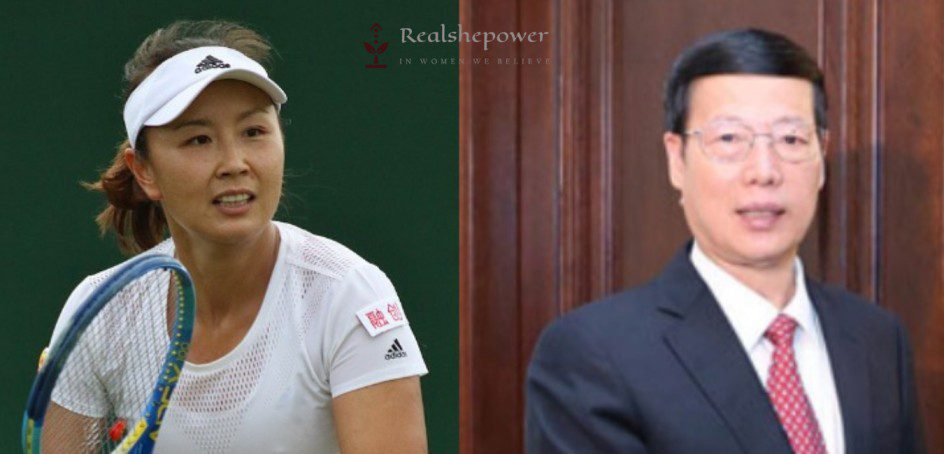Chinese tennis player accused a former top Communist Party leader of sexual assault, resulting in widespread censorship


Blanket censorship has silenced a Chinese tennis star’s #MeToo complaint against a former state leader, with authorities hurrying to erase any mention of a politically sensitive controversy that has resonated across the Chinese internet.
According to screenshots of a since-deleted post from Peng Shuai’s verified account on Weibo, China’s Twitter-like social media network, the former Wimbledon and French Open doubles champion accused retired Vice Premier Zhang Gaoli of forcing her into having sex on Tuesday.
In the post, Shuai, 35, claims they had a long relationship for an intermittent period that lasted at least ten years. Peng claims she gave Zhang, who is now 75 years old, her heart.
“Why did you have to come back to me, took me to your home to force me to have sex with you? Yes, I did not have any evidence, and it was simply impossible to have evidence,” she wrote.
“I couldn’t describe how disgusted I was, and how many times I asked myself am I still a human? I feel like a walking corpse. Every day I was acting, which person is the real me?”
In the past, China’s nascent #MeToo movement has targeted academics, NGO workers, and celebrities, with mixed outcomes. However, this is the first time it has made it to the Communist Party’s highest levels.
“We must realize how remarkable it is for Peng Shuai to choose to speak out. Few people would have the courage to do that, because it could come at the expense of the safety of yourself and your family,” said Lv Pin, a prominent Chinese feminist now based in New York.
Blanket Ban
As Peng’s charges spread over the internet, censorship erupted with a ferocity and speed that had never been witnessed in any of the country’s previous #MeToo incidents.
Her post was erased in less than 30 minutes after it was published on Tuesday. Screenshots of it were extensively shared on social media and in private chat groups at first, but they were soon banned, along with other posts on the case.
As of Wednesday evening, Peng’s verified account, which has over half a million followers, was still active on Weibo. However, it is no longer searchable. Her previous postings’ comment sections have also been disabled.
The rapid and extensive suppression contrasts sharply with the response to other high-profile #MeToo instances in recent months, such as the rape claims against Canadian-Chinese music sensation Kris Wu.
That issue was permitted to gain massive steam on social media, dominating top trending topics on Weibo for days, while state media amplify the claim, chastising Wu for his moral degeneration.
One must note that the personal lives of senior Chinese officials are often cloaked in secrecy, with even the most basic biographical information being deemed taboo.
Online Support for Peng
Despite the suppression, a large number of social media users have expressed support for Peng, albeit in general terms.
“How desperate and helpless she must have been,” posted a popular tennis blogger with more than 200,000 followers. “Hope you stay safe.”
“I don’t know what else can I say apart from praying she’ll be safe. We’ve accepted by default that this incident will disappear from the internet — the post will disappear, the account will disappear, justice will disappear; only the pain that torments the victim will not disappear, only the fear of the next victim will not disappear,” said another comment.
Both posts were later deleted.
Survivors of sexual assault have long faced shame and opposition in China, both on the official level and among the general public. However, as the #MeToo movement gained traction in recent years, an increasing number of women have rallied alongside victims who spoke up.
Written by Dhriti Chaturvedi
